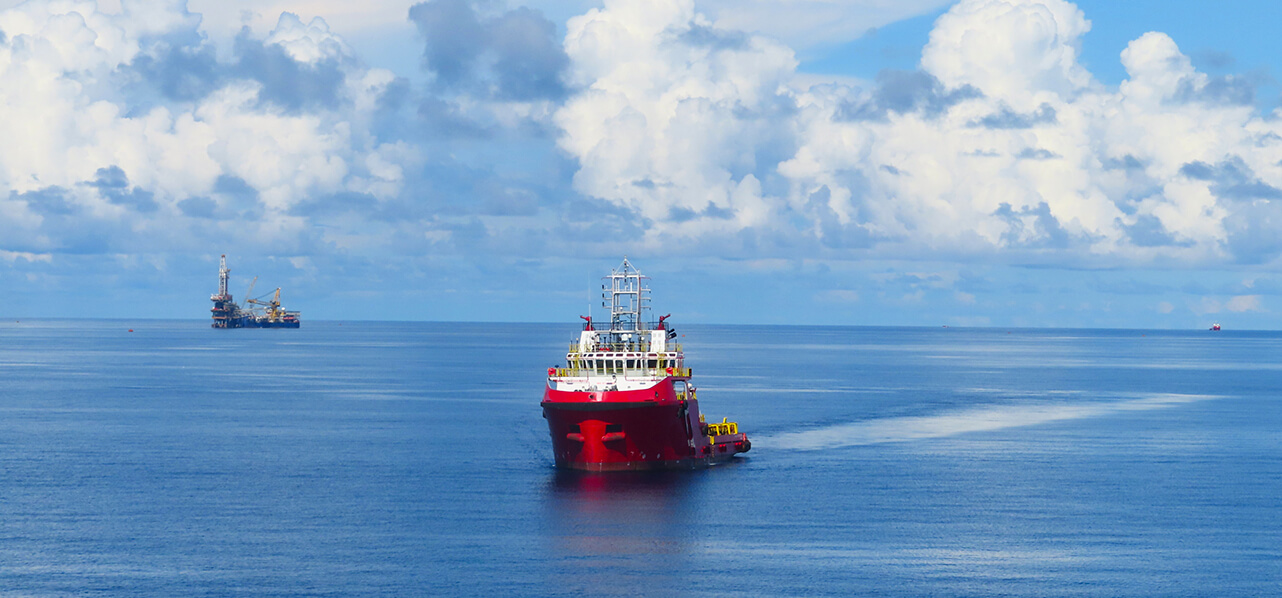Partner New York
"Reducing shipping’s carbon footprint is a top priority for the maritime industry."
Background: Why a carbon tax?
In the past few years, the global shipping industry has been focussed on transitioning to a more environmentally conscious model of fueling ships by reducing greenhouse gas emissions such as carbon dioxide, methane and nitrous oxide. As evidenced by our Environmental, Social and Governance (“ESG”) Survey: The Sustainability Imperative, reducing shipping’s carbon footprint is a top priority for the maritime industry. This follows on from the Poseidon Principles, which established a global framework for assessing and disclosing greenhouse gas emissions by ships.
The Marshall Islands and the Solomon Islands are low-lying island nations, particularly vulnerable to the rising of the ocean caused by global warming, and therefore have a strong vested interest in moves to limit greenhouse gases. The Marshall Islands’s participation is noteworthy, in that they are also home to the world’s third-largest shipping registry.
While the solution to the industry’s decarbonisation challenges are widespread and varied, a common question emerges — “Who is going to pay the bill?” A carbon tax is one option.
How would a carbon tax work?
While the precise mechanics of a carbon tax remain uncertain, it is likely that each shipowner or other interested party would self-report the amount of carbon dioxide emissions by the relevant vessel over the relevant period, and the tax would be assessed on such reported amount. Reports could be made and taxes paid after each voyage, or after the last voyage in a given year or other time period. For voyages that straddle the end of the year (or other tax period), it would likely be impracticable to report on carbon emissions while the ship is in transit, although it is possible that the tax could be prorated to each period in such case. Issues such as monitoring, auditing, compliance and penalties for underpayment or failure to report remain to be addressed.
"The Marshall Islands and Solomon Islands have suggested that at least 51% of the tax revenue raised go toward climate change adaptation and mitigation costs."
The IMO would be charged with collecting and disbursing the tax. The Marshall Islands and Solomon Islands have suggested that at least 51% of the tax revenue raised go toward climate change adaptation and mitigation costs, with the remainder going towards decarbonization research & development and administrative costs. How exactly the tax revenues would be disbursed will also remain to be seen.
It is also possible that the tax proposal could be tweaked in various ways. For example, the tax could be assessed not on all carbon emissions, but on all carbon emissions above a set standard, with a subsidy paid on ships whose emissions fall below the standard. The revenue effects could be made up by raising the rate of the tax above the target standard. Such a proposal would more sharply punish the worst polluting ships, while rewarding the cleanest. Taxes could also be imposed on other greenhouse gases, not just carbon. Nevertheless, the Marshall Islands and Solomon Islands proposal has effectively set a benchmark (US$100 per ton of carbon dioxide, implemented by the IMO, beginning in 2025) against which other proposals can be judged.
Contractual considerations
A key question for shipowners, charterers and other relevant parties will be who will be liable to pay the tax. It is not at all clear under the carbon tax proposal which party would be legally obliged to pay. For example, if a shipowner bareboat charters the ship to a demise owner, who time charters the ship to a charterer, there are at least three potential parties against whom the tax could be assessed. It is also possible that the various parties could be jointly and severally liable, in which case the IMO could collect from any of them.
While some charter agreements have clauses that seek to assign tax liabilities, some have no tax provisions, and others contain only a gross up clause for withholding taxes.
"A key question for shipowners, charterers and other relevant parties will be who will be liable to pay the tax."
It is arguable whether any new carbon tax would qualify as a “tax” for contractual purposes, unless a deliberately wide definition is included in the contract. A “tax” is traditionally defined as any mandatory contribution imposed by a governmental authority. It is not at all clear whether the IMO (which is a specialized agency of the United Nations) is a governmental authority for this purpose.
It is certainly possible that a standard tax provision in a charterparty could cover a future “carbon tax”, but if the parties wish to reduce ambiguity, it may be helpful to make clear in the agreement that any carbon tax (whatever that may be) is borne by the agreed party. It also may be important to balance specific language with enough broad qualifiers to cover alternatives to the current proposals. For example, if the agreement refers only to a “carbon” tax, but the tax is assessed on other greenhouse gases, a party may argue on technical grounds that the agreement does not cover such other taxes. These issues of expected but uncertain future rule changes have greater significance for long term contracts. That the charges are intended to drive behavioral change means they must have the potential to change significantly the economics of a charter agreement, and so cost allocation is a key issue. Additional questions involve the timing of the tax. For example, assuming the charterer has agreed to be responsible for the tax, if the tax is levied only after the time charter has terminated, should the expected tax be collected as part of charterhire (with a potential rebate for over-collection), or should it be collected only once it is assessed? Another question is which party should collect any subsidy for beating target emissions (if there is one).
Conclusion
The proposal by the Marshall Islands and Solomon Islands is potentially groundbreaking in its attempt to tax greenhouse gas emissions by the shipping industry. Although much uncertainty remains regarding the rollout of the tax, parties should consider carefully their current and future contracts to determine how a potential carbon tax may be dealt with.
Key contacts
Partner New York
Partner London





